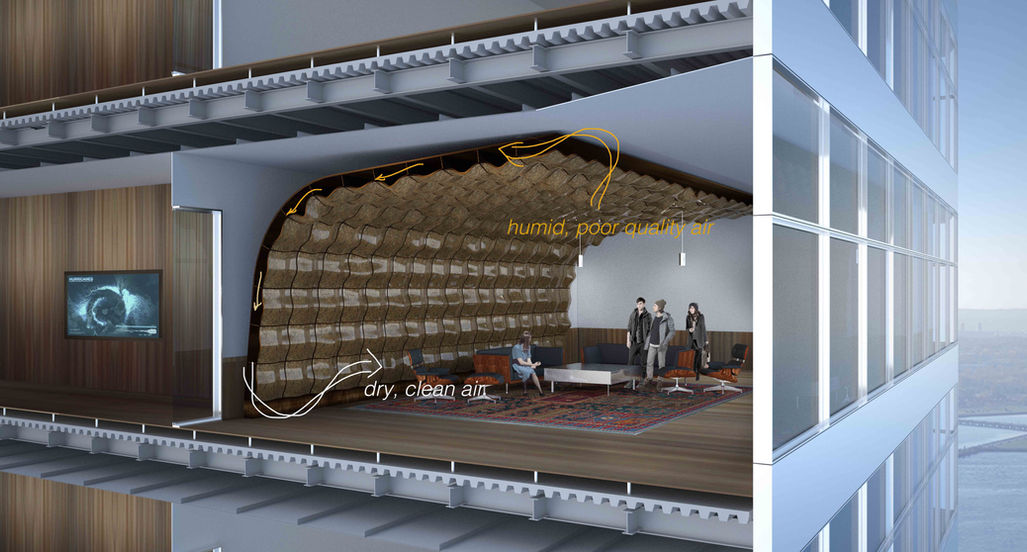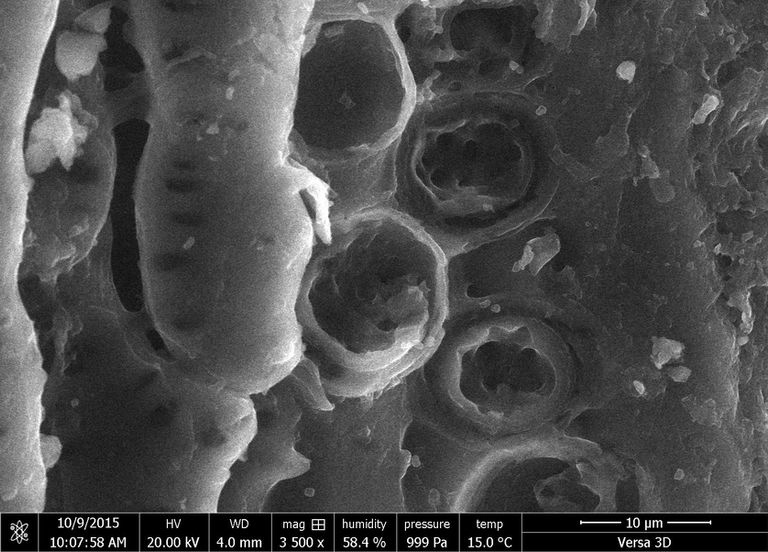

systems
main question
Agricultural By-product Modular Building-Integrated Systems (AMBIS) use locally available materials to provide positive indoor environmental conditions through localized remediation of moisture and pollutant loads in the air. Using the high sorption capacity of coconut and hydrogel, building-integrated panels draw moisture from the air to create a noticeable change in humidity, which in turn reduces the energy needed to heat or cool the space. Modular efficiently produced wall panels are formally designed to direct air flow and provide acoustic performance, all while reducing burdens on waste systems.
As global quantities of waste by-products from food production as well as the range of their applications increase, researchers are realizing critical opportunities to transform underutilized wastes into ecological profits. Within the tropical hot-humid region, where half the world’s current and projected future population growth is concentrated, there is a dire demand for building materials to meet ambitious development schemes and rising housing deficits.
How can we grow food and produce building materials from the same crops?

Image: Layers of coconut fibers once considered waste create layers of acoustic and sorbent paneling
gallery:

gallery:
team
collaborators
selected
publications
sponsors
NEXUS NY, Rotch Foundation
Mae-Ling Lokko, Anna Dyson, Alexandra Rempel, Joshua Draper.
Industry: Skidmore, Owings & Merrill LLP (SOM), Ecovative Design, AMBIS Technologies, Willow Technologies
How can we grow food and produce building materials from the same crops?


Renewable bio-based circular material economies in timber, post-agricultural by-products and plant-based bioremediation
Add a Title
AMBIS
AGRICULTURAL
BY-PRODUCT
MODULAR
BUILDING
INTEGRATED
SYSTEMS
Industry: Skidmore, Owings & Merrill LLP (SOM), Ecovative Design, AMBIS Technologies, Willow Technologies
Naomi Keena, Marco Raugei, Mae-ling Lokko, Mohamed Aly Etman, Vicky Achnani, Barbara Reck, Anna Dyson (2022)
Energies (2022)
United Nations Environment Programme
Yale CEA joins UNEP's Global Alliance for Buildings and Construction in Releasing Updates towards Zero Emission Futures for the Built Environment
Mae-Ling Lokko, Anna Dyson + Alexandra Rempel (2017)
PLEA 2016 Los Angeles: Towards Regenerative Environments (2017)
Naomi Keena + Anna Dyson (2020)
Yale Center for Ecosystems in Architecture, Yale University and United Nations One Planet Network Sustainable Buildings and Construction Programme (2020)
Agricultural By-product Modular Building-Integrated Systems (AMBIS) use locally available materials to provide positive indoor environmental conditions through localized remediation of moisture and pollutant loads in the air. Using the high sorption capacity of coconut and hydrogel, building-integrated panels draw moisture from the air to create a noticeable change in humidity, which in turn reduces the energy needed to heat or cool the space. Modular efficiently produced wall panels are formally designed to direct air flow and provide acoustic performance, all while reducing burdens on waste systems.
As global quantities of waste by-products from food production as well as the range of their applications increase, researchers are realizing critical opportunities to transform underutilized wastes into ecological profits. Within the tropical hot-humid region, where half the world’s current and projected future population growth is concentrated, there is a dire demand for building materials to meet ambitious development schemes and rising housing deficits.






















